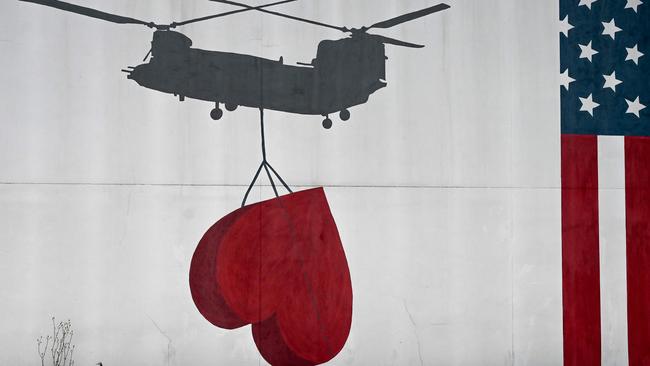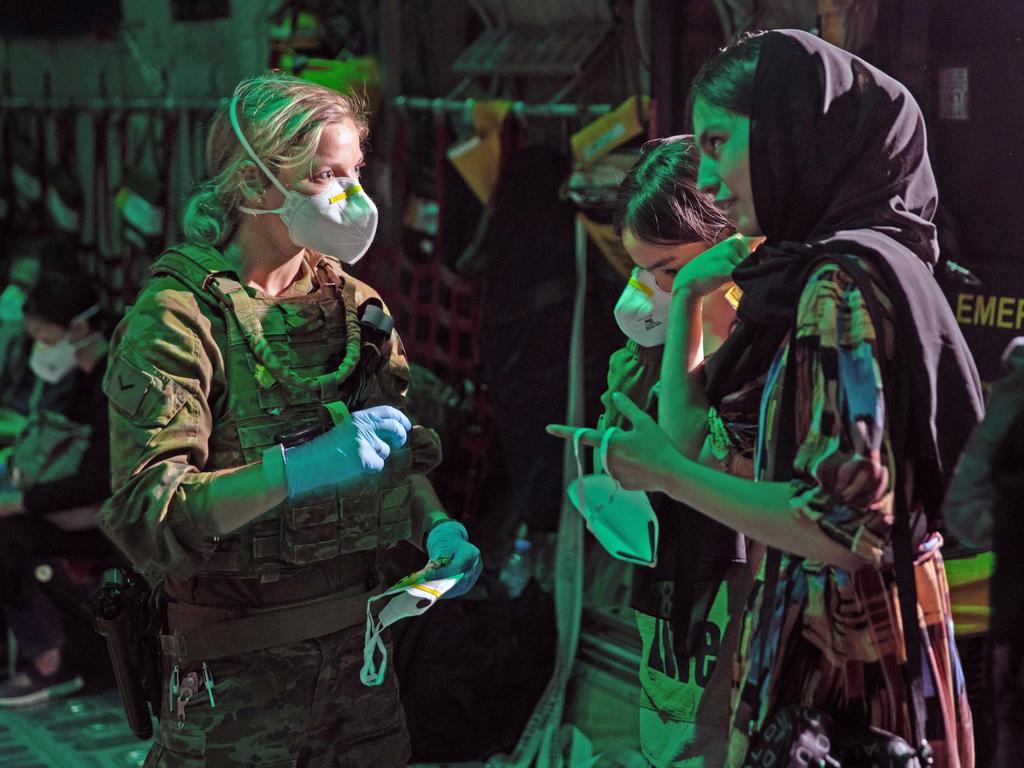World needs a policeman or we face chaos

His formulation attracted criticism, but actually I thought it a fair summary. The fact that it fell so far below the level of events was merely a reflection of the position we all find ourselves in.
He was quite right that the fall of Afghanistan was a disastrous, and possibly terminal, defeat for the position advanced for more than 20 years by people like me. It comes at the end of a long line of failures, after Iraq, Syria, the disappointments of the Arab Spring, after Libya.
These have all proved more challenging than they first appeared, and have required a depth and duration of commitment of which we have proved incapable. My colleague Matthew Parris has always argued that our ambitions were greater than our ability and in this he has been vindicated.
I would have to be remarkably unreflective not to wonder if the problem was not fundamental – that good outcomes were simply beyond our grasp and that it would be better not to try. At this miserable moment, I think every liberal-neocon is bound to consider whether this is not the sober and unpleasant truth. Yet when Varoufakis exhorted Afghan women to “hang in there, sisters” he was right about that too. For this feckless advice is merely a succinct description of the only alternative to the liberal-neocon position.
“Hang in there, sisters” is not merely the policy of the far left, of Varoufakis and Jeremy Corbyn. It is the policy of everyone who thinks that intervening militarily in Afghanistan and other places takes too long and is too much bother. “Hang in there, sisters” is the policy of Joe Biden, of mainstream Labour opponents of foreign adventures, of Tory sceptics. “Hang in there, sisters” is the policy of those going on about “Tony Bliar” and pledging “no more illegal wars”.
Biden’s actions are the result of 20 years of political rhetoric in the United States. Barack Obama’s slogan was “yes we can” but his argument was “no we can’t”. Donald Trump’s slogan was America First and his argument was that US foreign commitments were an encumbrance. Under both these presidents and now, calamitously, under the current one, America has been in retreat from its role as a world leader.
This has happened largely without complaint from the rest of the world. Much of western public opinion welcomed reassurance that America did not see itself as the world’s policeman. No one much seemed to be worried about what would happen if we dialled 999 and America didn’t pick up the phone.
There is a reason why we have police forces. Without them comes the rule of the violent, the triumph of the thief. Without them there is no law worth having and no freedom that endures. Yet the relief that US power seemed to be receding didn’t appear to create an understanding that a western alternative would need to be created. Instead, the alternative to American power has been Assad power, Putin power, Xi power and now Taliban power. The end of Pax Americana is proving to be the end of Pax.
As Bret Stephens argued prophetically in his 2014 book America in Retreat: “A world in which the leading liberal-democratic nation does not assume its role as world policeman will become a world in which dictatorships contend, or unite, to fill the breach. Americans seeking a return to an isolationist garden of Eden – alone and undisturbed in the world, knowing neither good nor evil – will soon find themselves living within shooting range of global pandemonium.”
After all those years when people argued that the imperialist Americans should “get out” of wherever it was they are, we see what happens when they do. People running alongside their aircraft, begging to come aboard, clinging to the underside as it lifts off.
Biden has argued that America can’t be in Afghanistan simply to protect women’s rights, because there are any number of places where it could be doing that. The justification for a sustained presence can only be the contribution it makes to American safety. It seems extraordinary that he did not perceive the small US contingent there as making his country more secure. But even if he did not, there is another argument against his position. Just because it isn’t possible for the West to protect human rights everywhere doesn’t mean it cannot or should not act to protect it anywhere.
The US is a country in which there are heated debates about micro-aggressions that somebody may have detected in a book but which shrugs both its left and right shoulders over abandoning millions of women to the most brutal kind of oppression.
In the United Kingdom we are prone to similar inconsistency. Last week I argued that we required some immigration control and received predictable criticism. Many of these critics are (rightly) anxious that we accept refugees to Britain. Yet the same people oppose military action that would prevent the creation of refugees in the first place, allowing them to remain in their homes where they would rather be.
So I understand the challenge posed to liberal-neocons. I think the argument that intervention is hard, has unpredictable consequences and may require decades of commitment without an obvious exit strategy is obviously correct. Twenty years of experience have underlined that.
Yet I do not regard “hang in there, sisters” as an acceptable alternative. We have seen all the problems, even the disasters, of intervention played out on our screens and people like me have to acknowledge what happened and own it. But now we are seeing the consequences of withdrawal and of rejecting “forever wars”, and advocates of that position have to acknowledge what is happening and own that too.
I don’t think the choice is easy. But I suppose it is my background that leads me to prefer the sins of commission to those of omission. I think the West may have underestimated the effort and sacrifice and years of engagement its interventions require, but this effort and sacrifice and duration is nonetheless worthwhile. The US entered the Second World War in 1941 and it still has troops in Germany.
For Britain we have to match the level of our resources and our commitment to our concern. If we agree that the world needs police officers, and recognise that the US will no longer police by itself, the consequences are clear. For we cannot offer our sisters false solidarity.
daniel.finkelstein@thetimes.co.uk
The Times







Hang in there, sisters! This was the advice proferred by Yanis Varoufakis, the leftist former Greek finance minister, to the women of Afghanistan. It followed his observation that Monday was the day “liberal-neocon imperialism was defeated once and for all”. He told Afghan women his thoughts were with them.